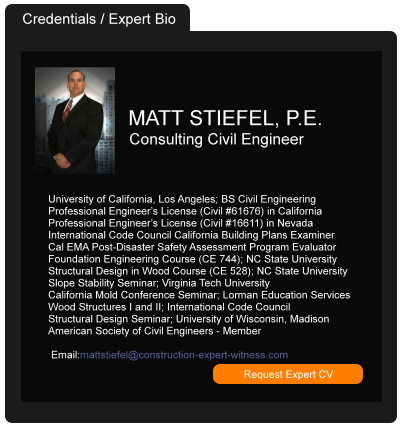Manhattan Gets First Crowdfunded Condos
September 03, 2015 —
David M. Levitt & Oshrat Carmiel – BloombergNew York’s first real estate project financed significantly though crowdfunding is set to open, a step forward for a nascent investing model that has yet to prove itself in commercial property.
AKA United Nations, an extended-stay hotel-condominium on East 46th Street near Second Avenue, will start taking guests Sept. 10. Sales of the suites have already begun. Of the $95 million it cost to buy and fix up the existing hotel, $12 million was raised from online pledges.
It’s “the first ever crowdfunded building in New York coming to completion, from A to Z,” said Rodrigo Nino, chief executive officer of Prodigy Network, which is gut-renovating the building with partners. Until now, “everything has been about promises.”
Reprinted courtesy of
David M. Levitt, Bloomberg and
Oshrat Carmiel, Bloomberg Read the court decisionRead the full story...Reprinted courtesy of
From Both Sides Now: Looking at Contracts Through a Post-Pandemic Lens
August 03, 2020 —
Lori S. Smith - White and WilliamsA little over a year ago, I wrote a blog post about the danger of relying on precedent. Now, more than ever, clients and their advisors need to revisit contract forms on which they may have been relying for years. While many of us have lived through times that required certain adjustments in how we viewed contractual obligations — recessions, wars, oil embargoes, natural disasters, 9/11 — none of these events had the widespread and long-lasting impact that the current COVID-19 pandemic is having. None of these events shut down the U.S. economy and impacted global supply chains across every industry in the manner we are now experiencing.
With this in mind, there is a need to figure out what the “new normal” will look like for contract negotiations in a post-pandemic world. Business professionals need to now anticipate more widespread disruption than we could have ever before imagined. It isn’t just force majeure clauses or material adverse effect provisions, as these will likely add pandemics and government shutdowns to their ever-growing list of contemplated risks, if they were not already expressly covered. And it is not clear, at least in the near-term, whether a resurgence or mutation of COVID-19 or the emergence of another virus can truly be seen as unforeseeable in a post-COVID world. The issues are much more fundamental to the approach that parties may take in negotiating contracts. Commercial contracts between purchasers, vendors, distributors, licensors and licensees will need to evaluate allocation of risk from both sides and come to a new happy medium that all can live with in an ever-evolving world. While parties should review their standard contracts in their entirety, some key provisions to think about include:
- Length of the contract and exclusivity. Depending on which side you are on, you may want to reconsider a long-term arrangement that ties your company to a particular vendor or distributor. Supply chain disruption can have a seriously detrimental impact on your business. Are requirements contracts where a particular supplier is required to make available all of your needs for a certain good or service really the best arrangement for your business? What about take or pay arrangements where you are obligated to which are common in certain industries pay a minimum amount or a penalty to a supplier whether or not you actually purchase the contemplated volume of goods ? Do you really want to be tied up in an exclusive arrangement, or do you need flexibility to maintain secondary or tertiary sources of supply? Do you want to provide a licensee with an exclusive right to your technology (even within a limited field of use or industry sector)?
Read the court decisionRead the full story...Reprinted courtesy of
Lori S. Smith, White and WilliamsMs. Smith may be contacted at
smithl@whiteandwilliams.com
Couple Claims Contractor’s Work Is Defective and Incomplete
December 04, 2013 —
CDJ STAFFWilliam and Prudence Dziatkowicz have sued Vince Bruno Construction, LLC over a house they contracted to have built in Weirton, West Virginia. According to the Dziatkowiczes, they contracted with Mr. Bruno and his self-named company to build a house, for which they would pay $248,250. The couple claims that Vince Bruno construction never completed work on the house, eventually abandoning the project. Further, they allege that the work done is defective, including improper installation of floor beams, and a failure to properly protect the project from weather.
Additionally, the couple contends that the contractor failed to pay a lumber company, leading to a lawsuit against the Dziatkowiczes and a lien on their house. The Dziatkowiczes are suing Vince Bruno Construction for more than $355,000 in damages.
Read the court decisionRead the full story...Reprinted courtesy of
California Reinstates COVID-19 Supplemental Paid Sick Leave
February 21, 2022 —
Jessica L. Daley - Newmeyer DillionOn February 9, 2022, Governor Newsom signed California Legislature Senate Bill 114 (SB 114), which reinstates supplemental paid sick leave for qualifying reasons relating to COVID-19.
Employers may recall SB 95, which expired on September 30, 2021, and was substantially similar to SB 114. Like its predecessor, SB 114 applies to employers with 26 or more employees and provides up to 80 hours of supplemental paid sick leave to full-time employees who are unable to work (including telework) for a reason relating to COVID-19. While this legislation goes into effect on February 19, 2022, it will retroactively apply back to January 1, 2022 and remain in effect until September 30, 2022.
REASONS FOR LEAVE – TWO PERIODS
Unlike SB 95, SB 114 breaks the total possible 80 hours of COVID-19 Supplemental Paid Sick Leave (CSPL) for full-time employees into two 40-hour periods.
Read the court decisionRead the full story...Reprinted courtesy of
Jessica L. Daley, Newmeyer DillionMs. Daley may be contacted at
jessica.daley@ndlf.com
Cultivating a Company Culture Committed to Safety, Mentorship and Education
March 19, 2024 —
David Frazier - Construction ExecutiveThe construction industry is aging. Valuing the significance of promoting a culture that enhances safety, mentorship and educational opportunities is essential to recruiting and retaining top talent to keep the industry thriving.
According to the U.S. Department of Labor, one in five worker deaths in the U.S. occurs in the construction industry. Additionally, construction workers are statistically at a higher risk for mental-health issues than virtually every other profession. According to a study conducted by CIRP, 83% of construction workers have struggled with mental-health disorders.
Today’s leaders must be dedicated to listening to employees' voices to shape the construction industry, as future leaders will be formed by a culture committed to employees' mental and physical health, safety, professional growth and overall workplace culture.
Reprinted courtesy of
David Frazier, Construction Executive, a publication of Associated Builders and Contractors. All rights reserved.
Read the court decisionRead the full story...Reprinted courtesy of
Trends and Issues which Can Affect Workers' Compensation Coverage for Construction Companies
December 26, 2022 —
Saxe Doernberger & Vita, P.C.Recent trends in workers’ compensation coverage suggest that the number of claims are likely to continue to increase, specifically for high-risk industries, like the construction industry. This article explores multiple trends and issues which are likely to impact workers’ compensation insurance for construction companies. Several of these trends and issues reflect demographic, labor, and technological shifts, which have important implications for contractors and construction companies.
1. Technological Innovation and Worker Safety
New wearable technologies and other data-collecting products such as helmets which warn of employee fatigue and sensors which help with ergonomic corrections have emerged in the markets to support safety measures in the construction industry. Although devices such as these tools can help business owners to demonstrate the implementation of safety programs to their insurance carriers, they can also distract the workers who are wearing them or go through a product malfunction, which could lead to injuries in the workplace and could also result in higher workers’ compensation premiums. While these new technological devices are intended to support worker safety on construction sites, it is also important for business owners to evaluate the potential risks of new technologies on a project site.
Read the court decisionRead the full story...Reprinted courtesy of
Saxe Doernberger & Vita, P.C.
In Real Life the Bad Guy Sometimes Gets Away: Adding Judgment Debtors to a Judgment
January 05, 2017 —
Garret Murai – California Construction Law BlogAs most litigators will tell you a plaintiff in a civil lawsuit needs to be able to prove both liability and damages to win a case. That is, you need to show both that the defendant is liable under the law and that you have suffered damages as a result. Proving one but not the other and you’ll lose the case.
But there’s one other consideration that is just as important, albeit often elusive, and that is, collectability. Even if you win the case, if you can’t collect on the judgment, you might as well have lost.
The following case, Wolf Metals, Inc. v. Rand Pacific Sales, Inc., California Court of Appeals for the Second District, Case No. B264002 (October 25, 2016), describes some of the remedies available, procedures to follow, and difficulties confronted when obtaining a default judgment against a judgment-proof defendant.
Read the court decisionRead the full story...Reprinted courtesy of
Garret Murai, Wendel Rosen Black & Dean LLPMr. Murai may be contacted at
gmurai@wendel.com
2014 WCC Panel: Working Smarter with Technology
May 13, 2014 —
Beverley BevenFlorez-CDJ STAFFDon MacGregor, Project Manager and General Contractor with Bert L. Howe & Associates, will be joining Brian Kahn, Esq. of Chapman, Glucksman, Dean, Roeb & Barger, Paul R. Kiesel, Esq. of Kiesel Law, Hon. Peter Lichtmen (ret), Hon. Nancy Wieben Stock (ret), and Peter S. Curry of Curry Stenger Engineering as a panelist in the break-out session Working Smarter With Technology at the 2014 West Coast Casualty Construction Defect Seminar being held May 15th and 16th at the Disneyland Hotel in Anaheim, California.
With a strong focus on the topic of this year’s seminar, Back to Business . . . Working Smarter, Not Harder, the panel will discuss ways that technology can assist our industry in working more efficiently, saving money and providing a better product. Conversely, the panel will also acknowledge the limitations of technology and areas where the use of advanced technology may not be appropriate.
The information provided will be of benefit to the construction defect litigator but equally valuable to other types of complex litigation. Accordingly, this panel will appeal to those whose scope of work goes beyond the bounds of construction defect. A brief outline of topics that will be addressed by each panelist include remote virtual appearance and deposition attendances, document management software, how to create, manage and edit documents using remote technology, technological tools that allow for easier communications, transfer of information and flexibility, expert technology, and technology in mediation and trial.
The panel discussion will go beyond past seminar discussions in that they will discuss and demonstrate tools that are just coming into use now as well as new tools which are being released prior to the seminar.
Read the court decisionRead the full story...Reprinted courtesy of


































































